ECIPH curated public health exchange program at Mangalore, India
The exchange program provided by ECIPH – a unit of CHD Group are of an enticing international nature, surpassing territorial constraints and cultivating an environment conducive to dynamic learning for students and professionals. With a mission to promote global health learning, sustainable development goals, theory to practical centered lessons in public health and visit places of public health importance, ECIPH offers interns & students an exceptional opportunity to engage in diverse initiatives that seek to improve the craft of public health, entrepreneurship, policy and governance ecosystem, and healthcare systems, enhance well-being, and tackle sustainable development goals besides addressing the most challenging problems of our times. ECIPH offers its interns & exchange program students the invaluable opportunity to work alongside seasoned professionals and researchers, providing them with the chance to acquire practical experience. By interacting with disparate communities and teams from around the world, this international exchange program not only expands views but also fosters cross-cultural comprehension. Interns who complete their training at ECIPH are adequately prepared to make significant contributions to the global health arena and positively influence communities in various regions by acquiring a comprehensive set of skills.
Here are a few major areas where we envisage collaboration that we will provide for free and without tuition fees, as we are a social and non-profit institute.
Public Health Field Learning: Exchange program students and interns are subjected to field visits understanding Indian health systems, networking with professionals on ground and participating in a rich immersive experience of global public health fostering innovation, new age thinking and learning to look at translation global health and converting classroom knowledge to field importance.
Urban Health: Students will go through an intensive training on urban health dynamics evolving around the world and policies that remain relevant to shape cities. Students will also be expose to other areas of learning where our competencies lie.
Disaster Management, Climate Change, Mental health, Food Security cross links: students will be exposed to various models of health systems and challenges around these thematic areas
Case study: Best practices and case study based learnings will be taught during the exchange program with comparative policies.
Sustainable Practices: As the world faces environmental issues fueled by climate change, we hope to support research and projects targeted at incorporating sustainable practices into many industries. Together, we can help to create a more resilient and environmentally sustainable future.
UN Development Goals: Our shared commitment to the United Nations’ development goals lays a solid platform for collaboration. We may actively contribute to these aims by collaborating on projects such as research, education, and community outreach.
We are open to Universities, Institutions, Non Profits & Governments around the world with a progressive vision to collaborate and nurture a healthy world through transboundary cooperation, collective knowledge sharing. To this effect, an MoU can be executed.

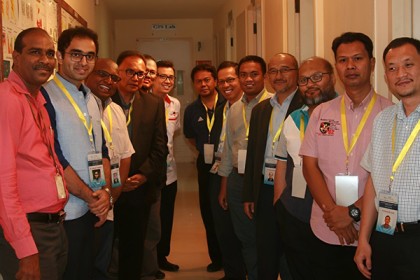
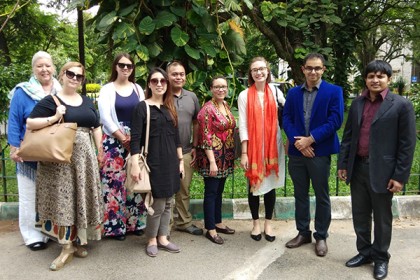

Draft Internship or Exchange Itinerary (This program is customizable for 7 to 15 days)
Day 1: Arrival and Orientation
Morning: Arrive at the trip’s appointed place. Welcome and registration.
Afternoon: ECIPH Director and faculty and teams will provide an orientation to the program. A workshop to review the next week, safety requirements, and expectations. Ice-breaking activities that promote group bonding.
Evening: Students will visit local markets to sample local cuisine and immerse themselves in the local culture.
Day 2: Rural Exploration
- Morning: Visit a nearby rural area. Introduction to rural public health systems
- Afternoon: Hands-on public health activity of social importance.
- Evening: Group reflection on the day’s events, followed by discussions about sustainable rural development.
Day 3: Coastal Adventure.
- Morning: River boating and discussion on global health challenges
- Afternoon: Visit to places of public health importance
- Evening: Interactions with other public health professionals and networking
Day 4: Institute Interaction
- Morning: Visit a local institute or research center focused on social entrepreneurship and sustainable development (Yenepoya Incubation Centre and Kitchen)
- Afternoon: Participate in seminars and discussions hosted by institute experts. Learn about successful projects and initiatives.
- Evening: Networking session with institute members, with opportunities for students to ask questions and hold casual talks.
Day 5: Cultural immersion.
- Morning: Visit local cultural attractions or museums to better grasp the region’s history.
- Afternoon: Attend a cultural program or performance. Interact with the local artisans and crafters.
- Evening: A group reflection on the day’s cultural activities.
Day 6: Community outreach.
- Morning: Participate in community service activities with CHD officers, such as helping at local schools or centers or through public health initiatives.
- Afternoon: Community-based projects including infrastructure construction or educational programs.
- Evening: Reflection and group conversation about the impact of community outreach and the value of giving back.
Day 7: Reflection and Farewell.
- Morning: Group reflection on the full week, including insights and personal improvement.
- Afternoon: Farewell celebration for local communities and institutes. Exchange of contact information for future collaborations.
- Evening: A meal to celebrate the week’s experiences and accomplishments. Optional cultural performances.
- This schedule seeks to provide students with a comprehensive experience by combining rural, seaside, and institute trips while also encouraging cultural knowledge and community engagement.
- Cost for the students: Service and Administrative fees (300 US Dollars per student) – these fees include, local transportation, ID card, bags and books, stationeries, and access to printing, and deployment of colleagues to accompany.
- Students are responsible for booking their tickets from parent location to Mangalore. Students are responsible for paying for their accommodation (ECIPH officers will help in assisting in finding the best and cost-efficient hotel and guest houses), students are responsible for buying food and snacks (ECIPH/CHD partners with catering services to offer delicious and healthy cuisine and students are free to choose and experience the local cuisine)
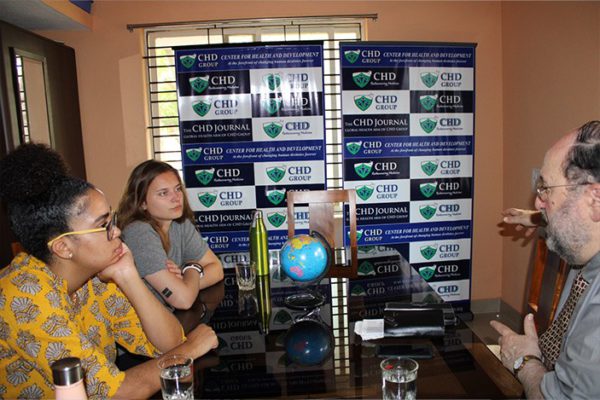
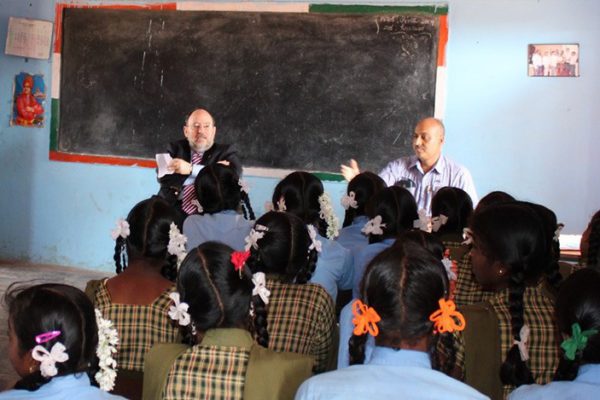
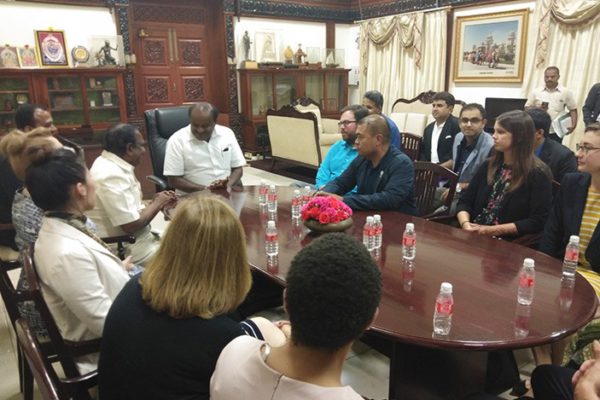

For exchange program or internship opportunities Contact
Office of Dr. Edmond : ps@edmond.in / office@chdgroup.org
To know more about us:
ECIPH Wikipedia: https://en.wikipedia.org/wiki/Edward_%26_Cynthia_Institute_of_Public_Health
CHD Group Wikipedia: https://en.wikipedia.org/wiki/CHD_Group
Dr. Edmond Fernandes Wikipedia: https://en.wikipedia.org/wiki/Edmond_Fernandes
